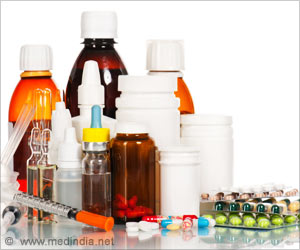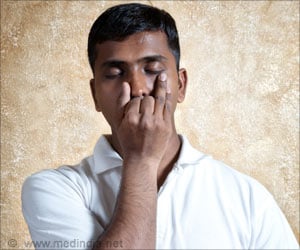World Antibiotic Awareness Week is observed from 12-18 November, 2018 to increase awareness about the threat of antibiotic resistance. Many stakeholders are participating in this global campaign.
- World Antibiotic Awareness Week is observed from 12th -18th November and aims to create awareness about antibiotic resistance at the global level, so that it’s spread can be prevented in a timely manner
- Antibiotics are drugs that are used for fighting bacterial infections. Many antibiotics have become resistant
- Antibiotic resistance is a major threat to global health and is spreading at an alarming rate. Therefore, there is an urgent need to stop it before it’s too late
The WAAW program will focus on the following aspects:
- Awareness and Behavior Change: This focuses on improving awareness and understanding about antibiotic resistance through effective communication, education and training. This will help people understand (i) why antibiotic resistance is occurring, (ii) why it poses a big threat to human health in the future, and (iii) there is still time to collectively do something about it.
- Global Surveillance and Research: This focuses on strengthening the knowledge and evidence base by intensified surveillance and research on antibiotic resistance. This will help to mobilize labs around the globe to find (i) evidence of antibiotic resistance, (ii) how it is spreading, and (iii) who are at the greatest risk.
- Infection Prevention Control, WASH and the Environment: WASH stands for ‘water, sanitation and hygiene’ and is a key public health intervention. This infection prevention method will focus on strategies to reduce the incidence of infections through proper hygiene, sanitation, and other infection control measures. This will initiate a campaign for all hospitals and healthcare centers to maintain the highest standards of infection control, hygiene and sanitation.
- Optimizing Use of Antimicrobials in Human and Animal Health: This will focus on strategies to minimize the use of antibiotics in human and animal health. This will help to (i) use antibiotics that are still effective as judiciously as possible, (ii) administer antibiotics to patients who really need them, (iii) regulate how antibiotics are distributed, and (iv) handle antibiotics with utmost care.
- Investment and Research & Development in Antimicrobial Resistance: This will focus on ways to increase sustainable investment for all the countries in the area of new drugs, diagnostics, and vaccines. This will urge governments, funding agencies and the private sector to invest in new tools, technologies, and skill sets.
Read More..
What are Antibiotics and Antibiotic Resistance?
Antibiotics are drugs used to treat bacterial infections. The first antibiotic to be discovered was penicillin by Sir Alexander Fleming, for which he was awarded the Nobel Prize in Physiology or Medicine in 1945.There are three categories of antibiotics:
- Bacteriostatic: These antibiotics halt the growth and proliferation of bacterial cells, giving time for the body to fight the infection.
- Bacteriolytic: These antibiotics cause lysis of the bacteria, thereby significantly decreasing the total number of viable bacterial cells.
- Bactericidal: These antibiotics directly kill all the bacteria, thereby curing the patient of any present infection.
Nowadays, many classes of antibiotics are available that fall within the above three categories.
Antibiotic resistance occurs when bacteria “resist” the antibiotics that are used to treat patients with bacterial infections. As a result, the antibiotics become useless for the treatment of these patients. In this regard, it should be noted that it is the bacteria that become resistant and not the patients.
Key Facts about Antibiotic Resistance
- Antibiotic resistance is circulating among humans, animals, and the environment and poses a big threat to global health
- Antibiotic resistance can affect anyone, at any age, in any country
- Antibiotic resistance is leading to untreatable infections
- The need for antibiotics can be reduced by following good hygiene practices
- Antibiotics don’t treat viral infections like colds and flu
- Effective waste treatment can protect the environment and reduce antibiotic resistance
Do’s and Don’ts
- Do seek the advice of a qualified healthcare professional before taking antibiotics
- Don’t share antibiotics with anyone – not even with family members
Global Action Plan on Antimicrobial Resistance
This plan has been developed by WHO, which highlights the following five points:- Get Informed: There is a need to be well informed about the latest authentic information in the area of antibiotic resistance
- Gather Data: Field researchers should gather all possible data on the spread of antibiotic resistance in the community
- Prevent Infections: Precautions should be taken to prevent infections in the first place. This will reduce the need for antibiotics
- Regulate Medicines: There is a need to strictly regulate medicines such as antibiotics so that they are only made available when prescribed by a registered medical practitioner
- Invest Now: All the member states need to invest heavily for tackling this global threat
Conclusion
Without urgent action, we could be facing a future in which infections and minor injuries could once again kill. It should be noted that our time with antibiotics is running out. Therefore, there is an urgent need to take action to protect human health. This change needs to be immediate and impactful.Key Messages of WAAW 2018 |
|
- World Antibiotic Awareness Week 12-18 November, 2018 - (http://www.who.int/who-campaigns/world-antibiotic-awareness-week)
Source-Medindia
















